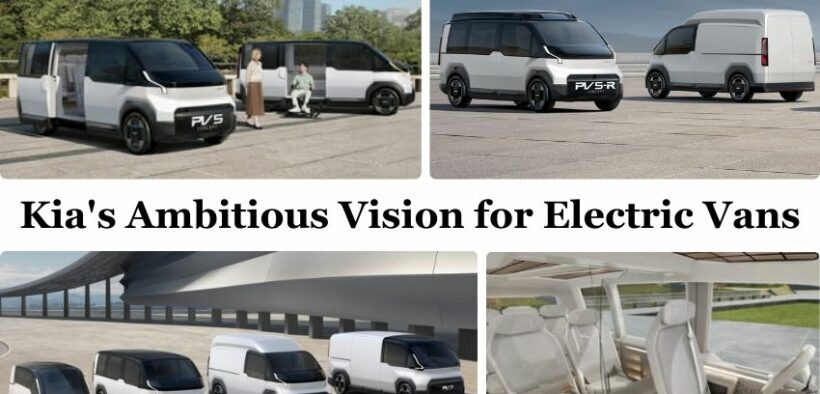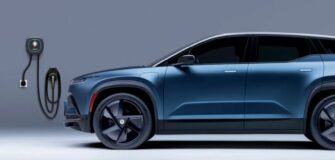Who’s Leading the Charge in Commercial Electric Vans? Kia’s PBV Lineup Takes Center Stage

Kia is making a bold entrance into the commercial sector with its innovative Platform Beyond Vehicle (PBV) family. The PBV, with its futuristic electric vans, promises a paradigm shift in the way commercial fleets operate. Let’s delve into the exciting details of Kia’s venture into the world of on-demand modularity and flexible electric mobility.
The PBV’s Unique Approach
Kia’s PBV family introduces the concept of “life modules,” heralding a new era of on-demand modularity. These upper body components, equipped with electromechanical and mechanical couplings, can be seamlessly attached to alter a vehicle’s core purpose. Picture this: transforming a standard high-roof delivery van into a pop-top camper for weekend getaways, all with the convenience of in-field conversion. While the exact method of this transformation remains a bit of a mystery, one intriguing image hints at the possibility of a large robotic arm facilitating the lifting and swapping of these “life modules.”
The PV5 Conventional Yet Innovative Van
The PBV family kicks off with the PV5, a commercial electric van that embodies the flexibility of the PBV concept. In its initial iteration, the PV5 adopts a more conventional approach, featuring regular van form factors such as a high roof and chassis cab. While specific details about wheelbase, powertrain, and other technical specifications are currently limited, illustrations showcase a sleek sci-fi delivery van with a prominent external screen detailing robotaxi operations. Though it might not match the aesthetic allure of the Hyundai Staria, the PV5 sets the stage for Kia’s foray into the world of transformative electric vehicles.
The Future Lineup: PV1 and PV7
As the PBV family unfolds, Kia envisions expanding the lineup with the introduction of a smaller PV1 and a larger PV7. The PV1, resembling the urban runabout style of a Citroën Ami, holds promise for city dwellers seeking efficient electric mobility. Meanwhile, the PV7 is poised to cater to larger commercial needs, rounding out a diverse lineup that spans various use cases.
Cross-PBV Features
Kia aims to seamlessly integrate its PBV offerings through cross-platform features. A modular rail-and-cabinet system facilitates the easy swapping of components across the entire PBV ecosystem, enhancing flexibility for fleet operators. Additionally, Kia promises a sophisticated software ecosystem empowering fleet managers to interact with the entire PBV fleet. Real-time data, AI integration, and detailed tracking of routes and delivery information highlight Kia’s commitment to providing comprehensive solutions for the ride-hailing and autonomous taxi sectors.
The Road Ahead
While Kia’s PBV family showcases ambitious ideas and a vision for the future, questions linger about its potential availability in the U.S. market. Will these groundbreaking commercial electric vans influence consumer products, possibly leading to a passenger version like the PV5 available to the public? As Kia navigates the early stages of the PBV adventure, the industry awaits to see which of these innovative concepts will withstand the challenges of generating interest and scaling for production.
In the ever-evolving landscape of electric mobility, Kia’s PBV family emerges as a transformative force in the commercial vehicle sector. The on-demand modularity, connectivity features, and diverse lineup paint a picture of a future where commercial fleets can adapt dynamically to changing needs. While uncertainties surround its global reach and influence on consumer products, Kia’s PBV adventure represents a significant step toward shaping the future of electric mobility. As the industry eagerly anticipates the unfolding chapters of Kia’s electric odyssey, one thing is clear—the PBV family is set to leave an indelible mark on the world of commercial electric vehicles.









